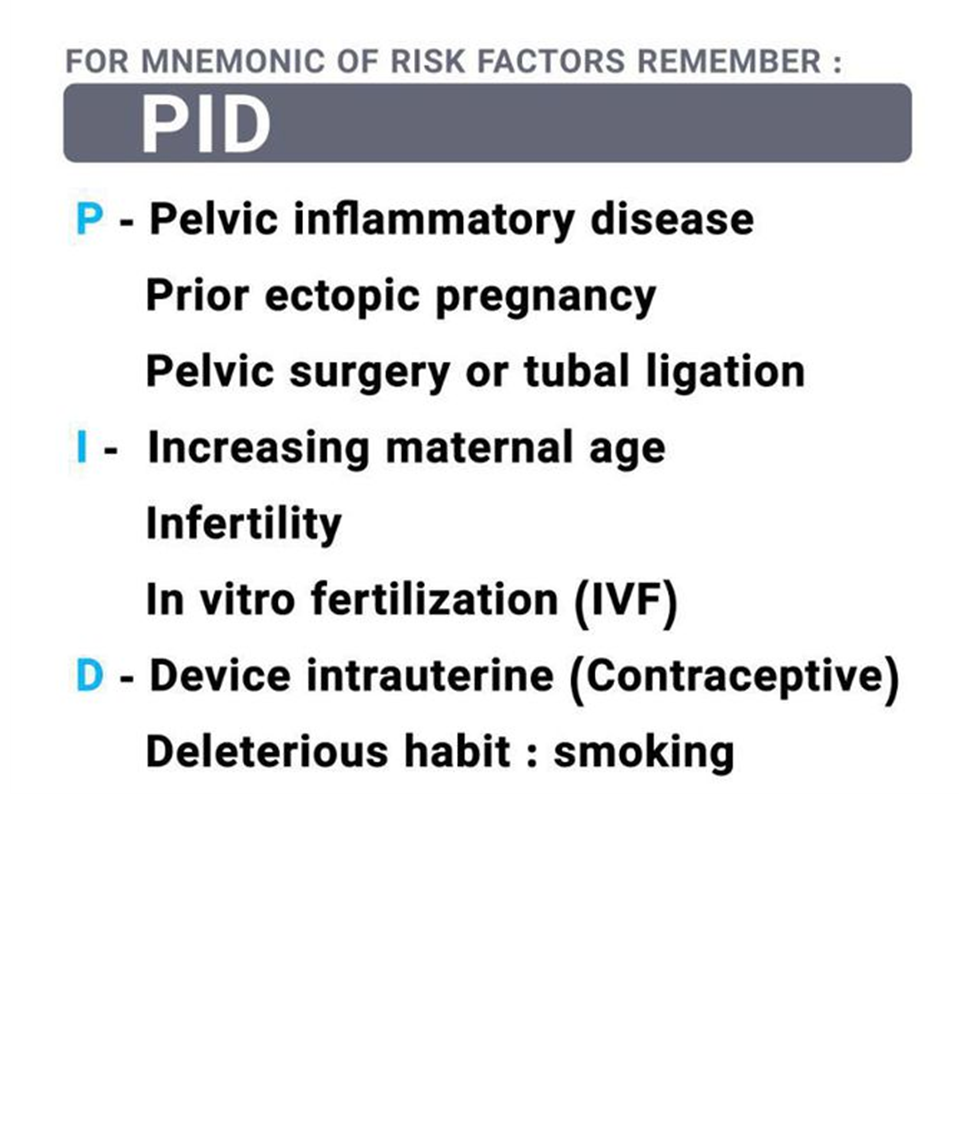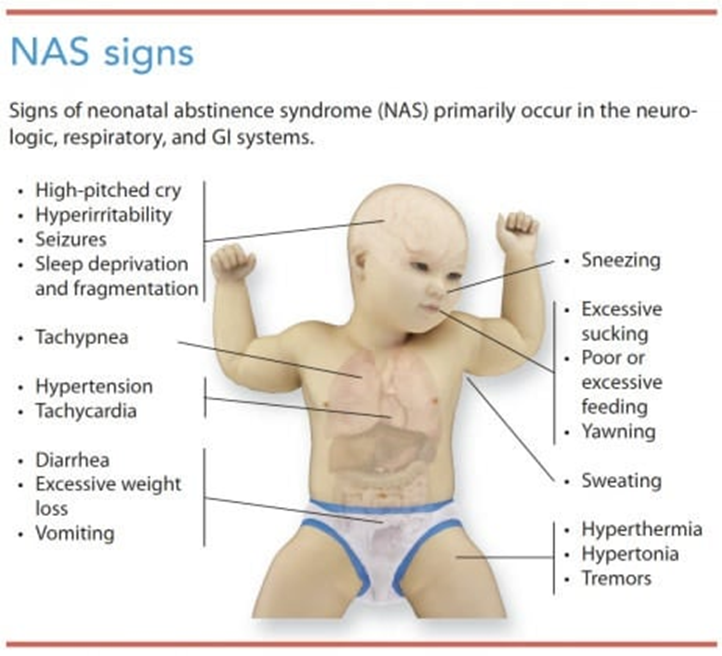A nurse is reviewing a client's history and physical examination findings. Which information would the nurse identify as contributing to the client's risk for an ectopic pregnancy?
recurrent pelvic infections
heavy, irregular menses
use of oral contraceptives for 5 years
ovarian cyst 2 years ago
The Correct Answer is A
A. Recurrent pelvic infections:
Pelvic infections, particularly those affecting the fallopian tubes (such as pelvic inflammatory disease), can lead to scarring and damage to the fallopian tubes. Scar tissue can obstruct the normal passage of the fertilized egg, increasing the risk of ectopic pregnancy.
B. Heavy, irregular menses:
While irregular menstrual cycles can sometimes be associated with conditions like polycystic ovary syndrome (PCOS), heavy and irregular menses are not typically considered direct risk factors for ectopic pregnancy. However, underlying conditions contributing to irregular menstrual cycles, such as hormonal imbalances or conditions affecting the reproductive organs, could potentially increase the risk.
C. Use of oral contraceptives for 5 years:
Oral contraceptives (birth control pills) are known to significantly reduce the risk of ectopic pregnancy. They work by preventing ovulation and altering the uterine lining, making it less likely for a fertilized egg to implant outside the uterus. Therefore, long-term use of oral contraceptives would generally decrease the risk of ectopic pregnancy rather than increase it.
D. Ovarian cyst 2 years ago:
While ovarian cysts are common and usually benign, they typically do not directly contribute to the risk of ectopic pregnancy. However, certain types of ovarian cysts, such as those associated with conditions like polycystic ovary syndrome (PCOS) or endometriosis, may indirectly affect fertility and increase the risk of complications during pregnancy, including ectopic pregnancy.

Nursing Test Bank
Naxlex Comprehensive Predictor Exams
Related Questions
Correct Answer is D
Explanation
A. "I need to avoid driving to and from work every day."
This statement indicates a misunderstanding of how to minimize lymphedema. Driving itself does not directly contribute to lymphedema. However, activities that involve prolonged or repetitive use of the affected arm, such as gripping the steering wheel while driving for long periods, may increase the risk of developing lymphedema. The nurse should clarify that while driving is generally acceptable, the client should take breaks and perform arm exercises during long drives to promote circulation.
B. "Any blood pressures need to be taken in my right arm."
This statement demonstrates correct understanding. Taking blood pressure measurements, administering injections, or obtaining blood samples from the unaffected arm helps prevent trauma or injury to the arm at risk for lymphedema. This practice helps avoid disrupting lymphatic flow and reduces the risk of developing lymphedema in the affected arm.
C. "I need to wear gloves when doing any gardening."
Wearing gloves during gardening is a recommended precaution to minimize the risk of injury and infection, especially if the client has undergone lymph node removal. This statement reflects appropriate understanding and adherence to preventive measures to protect the affected arm from cuts, scratches, and potential infection that could exacerbate lymphedema.
D. "I should wear clothing with elasticized sleeves."
This statement indicates a misunderstanding of how to minimize lymphedema. While elasticized sleeves or compression garments can help manage lymphedema by providing gentle compression and support to the affected arm, wearing tight or constrictive clothing, including elasticized sleeves, can potentially restrict lymphatic flow and exacerbate lymphedema. The nurse should clarify that loose-fitting clothing is preferable to allow unrestricted movement and circulation in the affected arm.
Correct Answer is ["A","B","C","D","E","F"]
Explanation
A. Hypertonicity: Neonates experiencing withdrawal from heroin may exhibit increased muscle tone, leading to stiffness or rigidity. This is often observed as hypertonicity in their limbs or overall body.
B. Excessive sneezing: Nasal congestion and sneezing are common symptoms in neonates undergoing withdrawal. These symptoms can occur due to the irritant effects of withdrawal on the respiratory system.
C. Low whimpering cry: Infants with neonatal abstinence syndrome (NAS) may have a weak or high-pitched cry, which may sound like whimpering. This cry can be indicative of the discomfort and distress they are experiencing.
D. Overly vigorous sucking: Neonates with NAS may display exaggerated sucking behaviors, often characterized by frantic or overly vigorous sucking during feeding or when provided with a pacifier. This behavior is a manifestation of their heightened agitation and irritability.
E. Lethargy: Some neonates experiencing NAS may appear excessively drowsy, fatigued, or have decreased responsiveness. Lethargy is a common symptom associated with withdrawal from heroin or other opioids.
F. Tremors: Tremors or shaking movements, especially when the neonate is disturbed or agitated, are hallmark signs of NAS. These tremors can be mild to severe and may affect various parts of the body, such as the arms, legs, or jaw.

Whether you are a student looking to ace your exams or a practicing nurse seeking to enhance your expertise , our nursing education contents will empower you with the confidence and competence to make a difference in the lives of patients and become a respected leader in the healthcare field.
Visit Naxlex, invest in your future and unlock endless possibilities with our unparalleled nursing education contents today
Report Wrong Answer on the Current Question
Do you disagree with the answer? If yes, what is your expected answer? Explain.
Kindly be descriptive with the issue you are facing.
